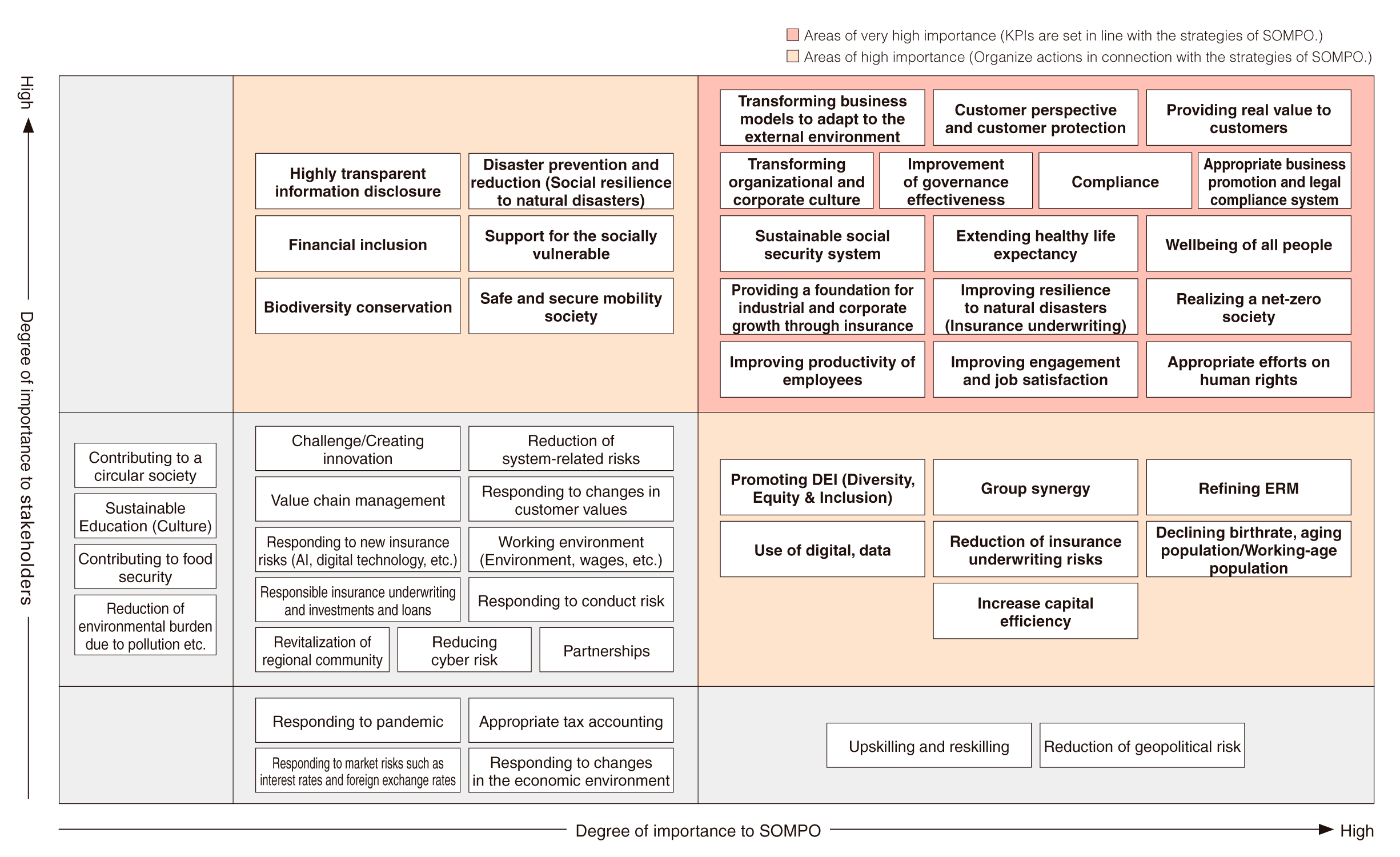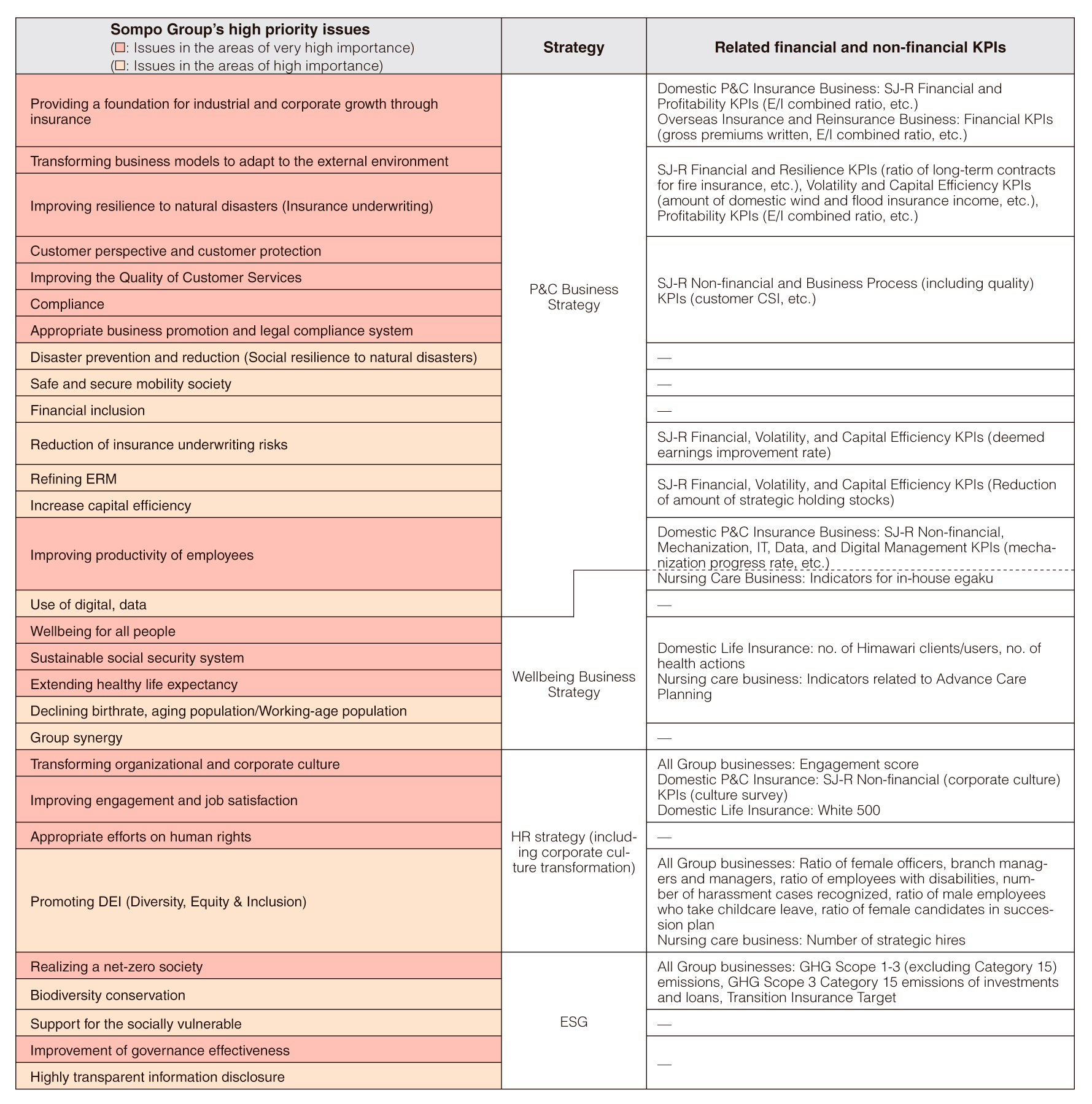Process of Formulating “Description of Purpose”
What does a future of health, wellbeing and financial protection that we strive to create look like?
What social issues do we face and what kind of long-term vision do we aim for as we work to create this future?
What strategies should each of Sompo’s businesses have, and what value should each provide to achieve this?
After engaging in a series of management discussions, we formulated “Description of Purpose.”
We have positioned “Description of Purpose” as the Group’s priority issues for realizing SOMPO’s Purpose and each business will work to challenge them by carrying out their respective strategies.
- We view “Description of Purpose” as a form of Materiality. Please refer to the next page onward for the process used to formulate “Description of Purpose.”
Group Corporate Philosophy
[PROCESS1]Identify issues
[PROCESS 2] Prioritize issues
In formulating “Description of Purpose,” we conducted a quantitative and qualitative assessment of the impact on the SOMPO Group and on society of the issues we comprehensively identified based on international guidelines and the SDGs, etc. (Process 1), and prioritized the results by engaging in both external dialogue with customers, investors, non-governmental organizations, experts, partners, and other stakeholders as well as holding internal discussions among management (Process 2).
After undergoing these processes, we created the following map and identified 16 issues of very high importance and 13 issues of high importance.
Map of issues (As of 2024 March*1)

- With regard to issues and their prioritization, we perform an annual analysis to confirm whether revisions are necessary, taking into account changes in the external environment and the Group’s business strategies, as well as the requests from stakeholders.
[PROCESS3] Link key issues to strategies and KPIs*2
For the 16 critical issues, we identified which businesses, strategies and specific initiatives should be taken to resolve them, and set financial and non-financial KPIs for each (Process 3).

*2 This table is an organized list of the Group’s high-priority issues and the main strategies and KPIs associated with them.
[PROCESS 4]Express as “Description of Purpose” *3
We then clearly articulated these issues that we need to solve, as well as the strategies to implement and values to provide in order to create the future we strive for, in “Description of Purpose” for both internal and external stakeholders (Process 4).
Description of Purpose
For a future of health, wellbeing and financial protection
Sompo prioritizes health, wellbeing and financial protection to create opportunities for everyone we serve, from individuals to enterprises.
In a rapidly changing world and shifting demographics that demand resilience and adaptability, we are steadfast in our commitment to build on insight and meticulously craft solutions for the future.
We leverage our deep collective expertise to connect across boundaries and beyond geographies, to deliver a collaborative and connected partnership that meets the unique aspirations and risk management needs of those we serve.
For a future of health, wellbeing and financial protection.
We are SOMPO Group.
*3 “Description of Purpose” has been approved by the Group CEO (Director) following discussions at the Group Executive Committee, and has been presented to the Board of Directors.
Reference:Materiality and KPIs for FY2021-FY2023, SDGs Matrix
Progress Towards our Materiality and KPIs
SDGs Matrix